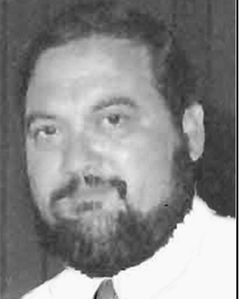Mr. Edward C. Starnes
 Edward Starnes was born in
Marquette, Michigan, on January 19, 1950. He entered the Army in 1969, serving as a military journalist and
newspaper editor at Fort Leonard Wood, Missouri, and Fort Monroe, Virginia. He was the honor graduate at the
Department of Defense Information School Journalist Course in 1972. He left the service in 1973 to become a
Department of the Army civilian journalist, starting out as a Public Affairs Intern at Headquarters, Training and
Doctrine Command, Fort Monroe, Virginia, from 1973 to 1975.
Edward Starnes was born in
Marquette, Michigan, on January 19, 1950. He entered the Army in 1969, serving as a military journalist and
newspaper editor at Fort Leonard Wood, Missouri, and Fort Monroe, Virginia. He was the honor graduate at the
Department of Defense Information School Journalist Course in 1972. He left the service in 1973 to become a
Department of the Army civilian journalist, starting out as a Public Affairs Intern at Headquarters, Training and
Doctrine Command, Fort Monroe, Virginia, from 1973 to 1975.
Starnes next served as the Deputy Public Affairs Officer, US Air Defense Artillery Center, Fort Bliss, Texas, from 1975 to 1986. In 1987, he accepted the position of Communications Coordinator for the Ordnance Center and School at Aberdeen Proving Ground (APG) where he would be "the voice of the Ordnance Corps" for the next 18 years. He wrote countless articles telling the Ordnance Corps's story in Army Times, Army Logistician, PS Magazine, APG News, The Baltimore Sun, and Ordnance Magazine. He was quick to tell the Ordnance Soldiers' stories and to publicize their accomplishments. He also wrote dozens of poignant and memorable speeches for the Chief of Ordnance and other leaders.
Although trained as a print journalist, Starnes was not slow to adapt to the rapid changes in electronic information technology. Becoming a self-taught master web designer, he developed, launched, and maintained the Ordnance Corps's first website. He also developed an electronic weekly update, "Ordnance Reports," containing items of interest to the Ordnance community gleaned from commercial and Army news sources. In the mid-1990s, Starnes noticed that the Ordnance Corps, unlike many of the other branches of the Army, did not have an official prayer. On his own initiative, he wrote an inspirational prayer that the Chief of Ordnance, then MG John G. Coburn, approved as the official Corps prayer on March 4, 1994. In 1996, he exhibited his skills as a public affairs officer in a crisis situation by leading the Army's Sexual Scandal Response Cell, formed following proven allegations of misconduct by Ordnance Soldiers at APG that gained national notoriety. He managed the flow of information, providing as many facts as possible to the public while minimizing the damage to the Ordnance Corps's reputation.
Starnes contributed not only to the Ordnance Corps but also to the local community. He championed the Ordnance Center and School's participation in the Army Adopt-A-School Program, winning for the Ordnance Corps the Army's top award for Outstanding Community Service. He was widely known for his volunteer efforts, spending hundreds of hours as an emergency services provider. He garnered four awards from Aberdeen Proving Ground and from the state in recognition of his contributions as a volunteer. Mr. Starnes retired from federal service in January 2005 after more than 35 years of dedicated service. He died unexpectedly a month later after retiring to New Hampshire.